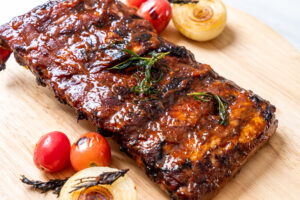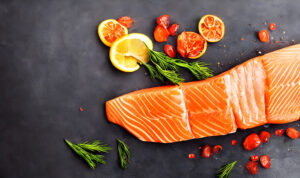
Order your next bottle of Scout & Cellar wine TODAY!
You’re humming along on your diet, losing one or two pounds per week and feeling good about yourself. In fact, you’re feeling so good that you’re congratulating yourself with a glass or two of wine in the evenings. But are you wondering how wine affects weight loss?
Suddenly, you hit a weight loss plateau. You’ve been eating healthier and exercising, so what could it be? The culprit may be the wine, unfortunately. You may be thinking “wine is just grapes, right?” Wrong. Wine has more calories than you might think.
We hate to spoil the party, but it’s important to be aware of how much wine you’re drinking. One 5-ounce glass of wine averages at about 125 calories, no matter red, white or sparkling. Multiply that by two or three glasses, and now you’re up to almost 400 calories.
HOW YOUR BODY PROCESSES ALCOHOL
Alcohol is metabolized differently than food. First, it can’t be stored, and second, it has to be converted from its ingested state to one that is not so poisonous.
It passes through your stomach and enters the bloodstream and the brain. But ultimately, alcohol must find its way to the liver, which is the only organ that knows what to do with it.
There, it takes center stage. Your liver lets alcohol go to the front of the line, before other nutrients, because it simply needs to break it down into CO2 and water and get it out of your body. Is all this science making you want to pause and take a sip of wine yet?
How Many Calories In Glass Of Red Wine
The pathways and mechanisms by which alcohol metabolism occurs read like they’re straight from a chemistry textbook. But on the most basic level, alcohol metabolism involves the breakdown of enzymes and the elimination of the byproducts.
Your gender, age, body size and genetics all play a role in how quickly alcohol is eliminated from your body.
Don’t forget to check out our post about choosing wine over beer HERE!
RED WINE AND WEIGHT
Several studies have assessed the link between alcoholic beverages and weight. When it comes to weight management, there appear to be both pros and cons to drinking red wine.
Pros
Red wine is rich in resveratrol and other antioxidants that may benefit blood sugar control, heart health, and inflammation. Additionally, moderate wine consumption may help protect against excess weight gain.
Red wine and other flavonoid-rich foods, like olive oil, nuts, fruits, and legumes, are considered staple foods in the Mediterranean-style diet, which has been associated with better weight control than a standard American diet.
Unfortunately, evidence on the effects of red wine itself is fairly mixed. Some animal studies have found that red wine consumption decreases body weight and body fat levels, but others have found the opposite.
Additionally, a study in 29 people with obesity found that red wine antioxidants appeared to not affect blood sugar control.
However, other human studies have noted that moderate alcohol intake may help improve blood sugar control, potentially making it easier to lose weight. More research is needed before the effects of red wine on weight control are fully understood.
Cons
Several studies have noted that excess alcohol consumption is linked to weight gain — especially in men. Alcohol contains more calories per gram than carbs and protein, and many alcoholic beverages, like beer, wine, and mixed drinks, may also be loaded with sugar.
Because of this, it can be easier to consume more calories than you intend to when you drink alcohol. Additionally, the calorie intake of an alcoholic drink may lead to insulin resistance and blood sugar control problems, which may be a precursor to weight gain and type 2 diabetes.
Note that 5 ounces (148 mL) of wine is considered 1 serving, and moderate drinking wine is defined as no more than 2 servings of alcohol per day for men and 1 serving of alcohol per day for women.
HOW TO AVOID MAKING EVEN UNHEALTHIER CHOICES
Alcohol also clouds your judgment about healthy food choices. This is a problem when you’re watching your weight. Pairing a glass of wine with cheese and crackers, or chips and dip, can seem not only harmless but, when you’re tipsy, can also seem like a great idea.
If you really want to cut down on empty calories, here are five tips for doing so:
Set Alcohol Aside For A While
Cut out alcohol for a few weeks and see what the scale says. You’ll likely be pleasantly surprised. Cut your consumption. Go from two glasses to one per night. Or a few drinks every other night or just on weekends.
Reduce Your Pour
Stick to American Heart Association limits of one 4-ounce glass daily (for women) and two 4-ounce glasses (for men). Measure out 4 ounces in your favorite wine glass so you know when to say “when.”
Switch Up Your Drinkware
Invest in 3- or 4-ounce wine glasses instead of 5-ounce or larger glasses.
Have Water On Hand
Alternate between sipping your wine and sipping this zero-calorie beverage. Or, make a spritzer – add 1-2 ounces of carbonated water to your wine and cut the wine down to 2-3 ounces.
Treat Your Body To A Healthy Snack Instead
For the same number of calories as a glass of wine, you could be nourishing your body with a healthy and tasty snack. Again, wine isn’t just grapes.
Some of my favorites are:
- 1 small square of 70-85% cocoa dark chocolate.
- 4 whole-grain crackers with 1 ounce of cheese.
- 1/2 ounce of cocoa-dusted almonds.
- 6-ounce plain yogurt with 1/2 cup of raspberries.
Take a look at your wine consumption, then try some of these ideas to see if they help get you back on your weight-loss plan!
Check out our post about the best glasses to use for different wines HERE!
Summary: How Wine Affects Losing Weight
You’re humming along on your diet, losing one or two pounds per week and feeling good about yourself. In fact, you’re feeling so good that you’re congratulating yourself with a glass (or two) of wine in the evenings. But are you wondering how alcohol affects weight loss?
Suddenly, you hit a weight loss plateau. You’ve been eating healthier and exercising, so what could it be? The culprit may be the wine, unfortunately. You may be thinking “wine is just grapes, right?” Wrong. Wine has more calories than you might think.
We hate to spoil the party, but it’s important to be aware of how much wine you’re drinking. One 5-ounce glass of wine averages at about 125 calories, no matter red, white or sparkling. Multiply that by two or three glasses, and now you’re up to almost 400 calories.
If you have any questions about how does alcohol affect weight loss contact me today.







